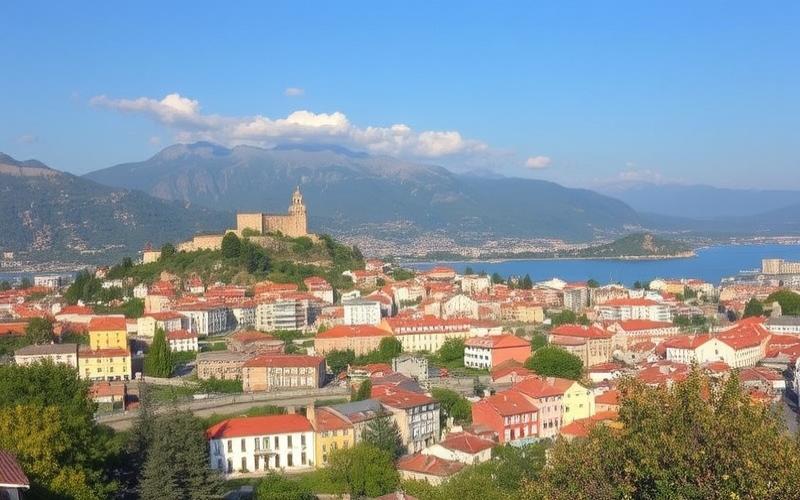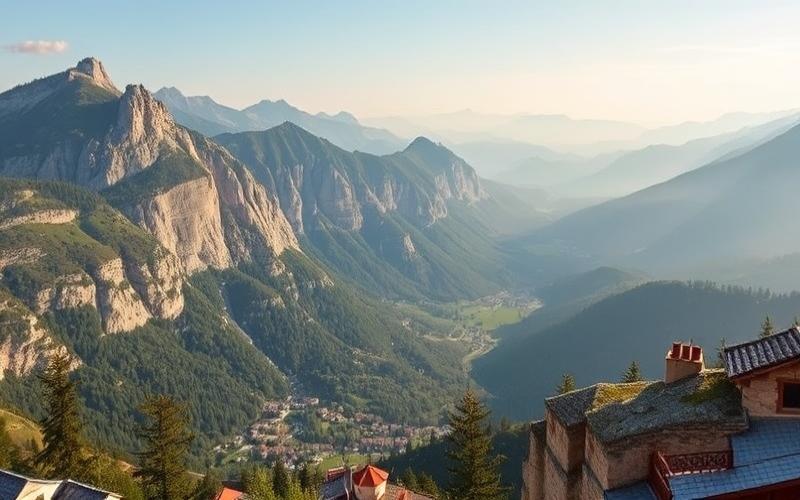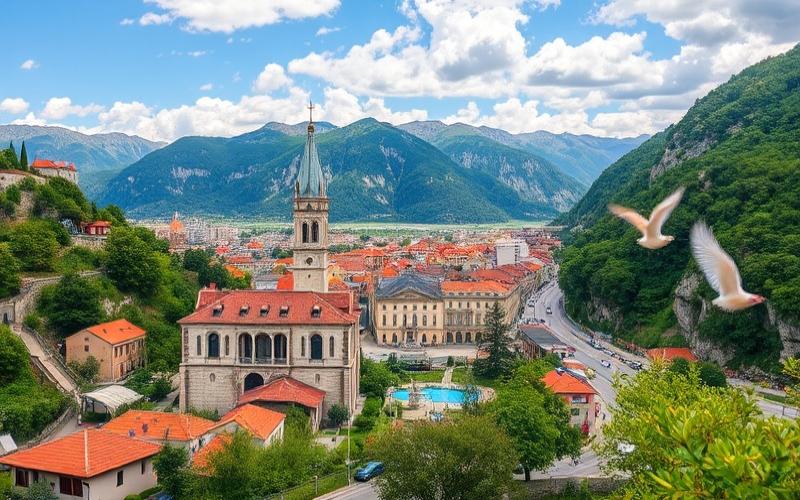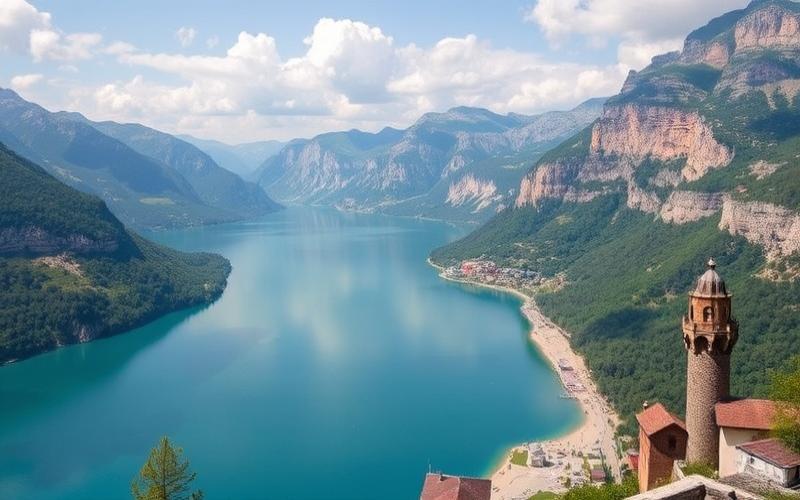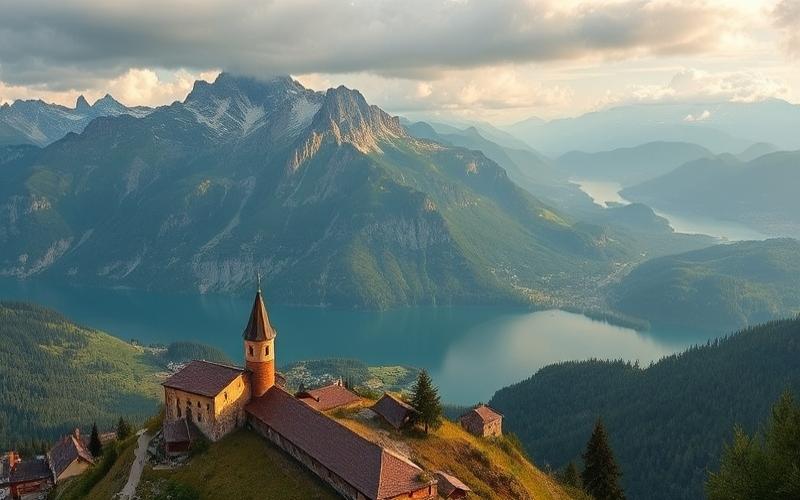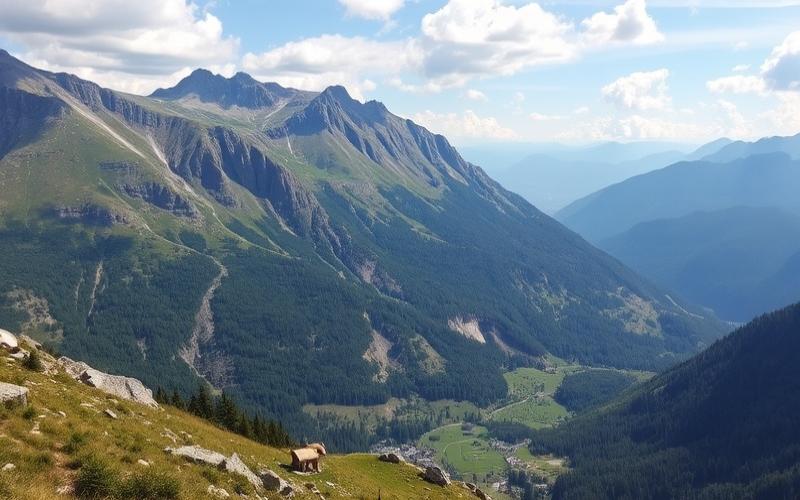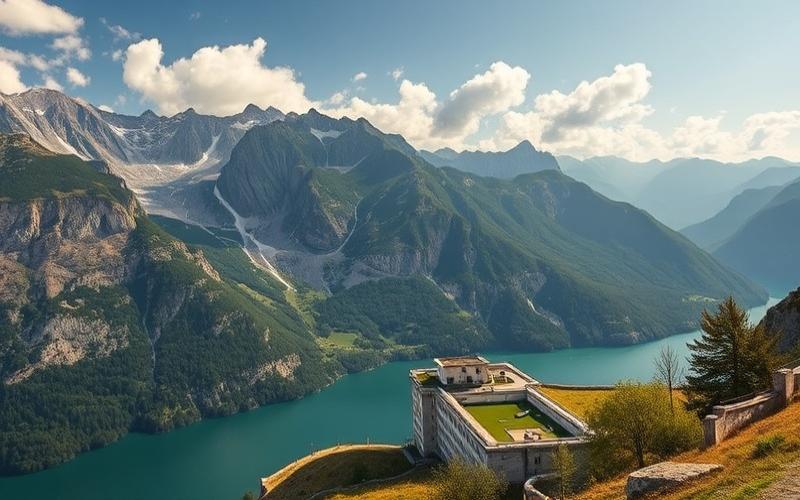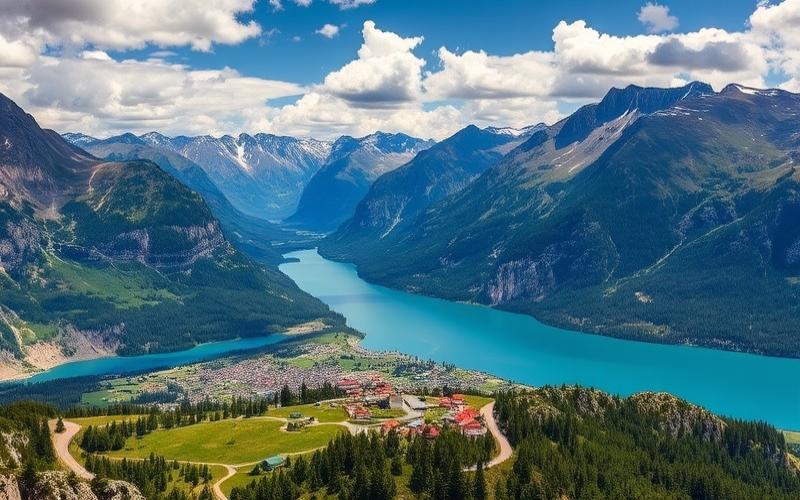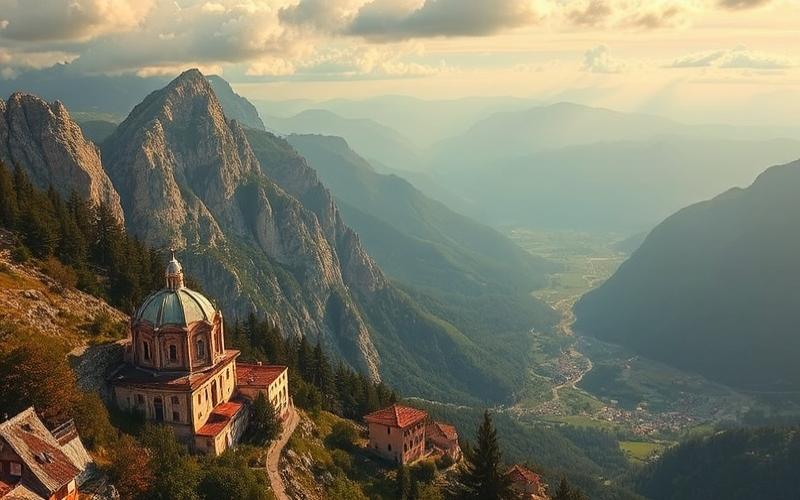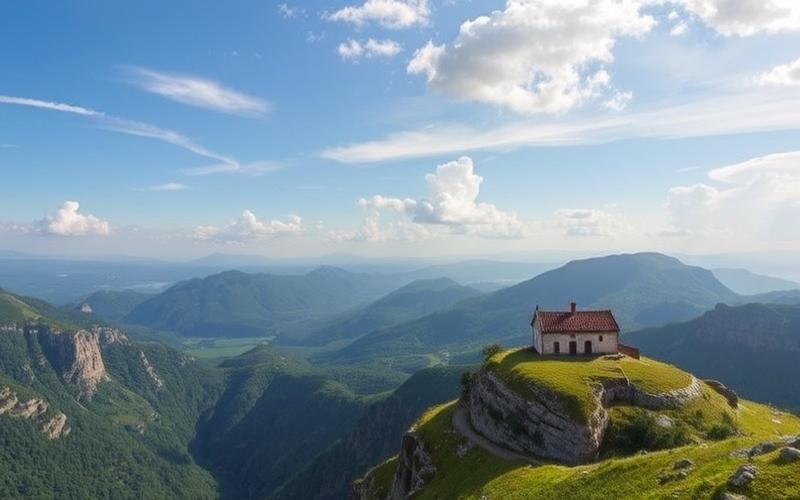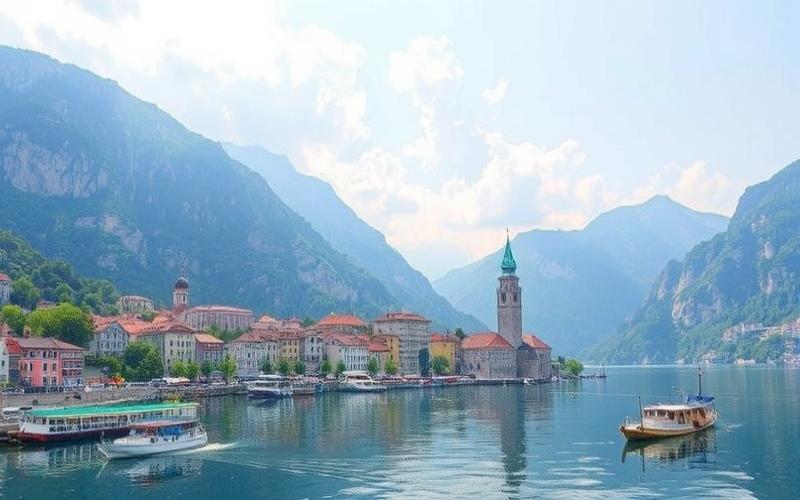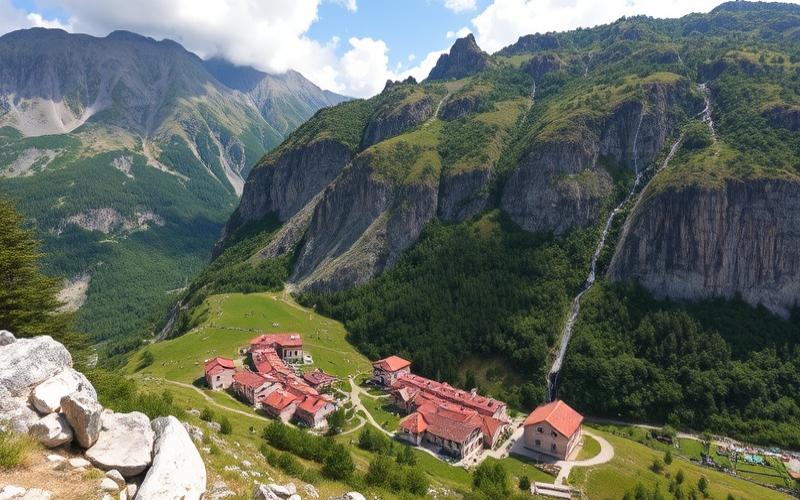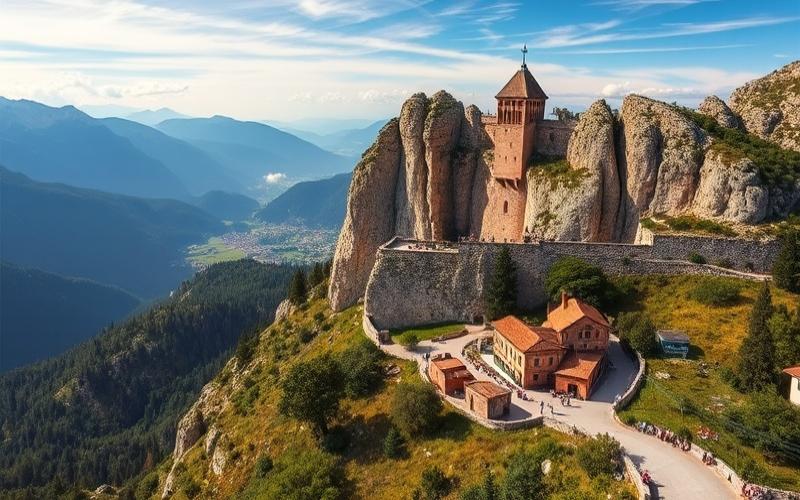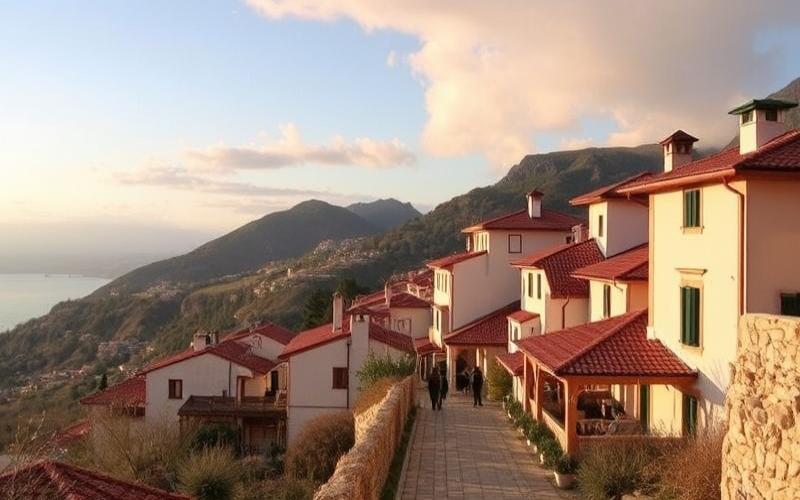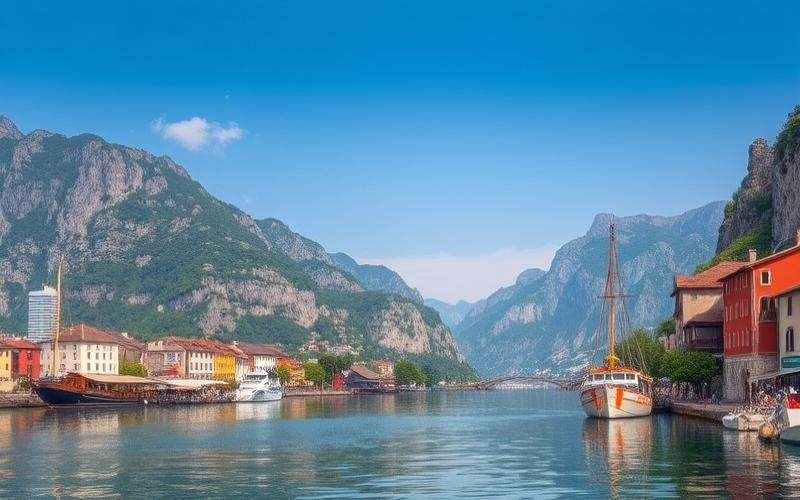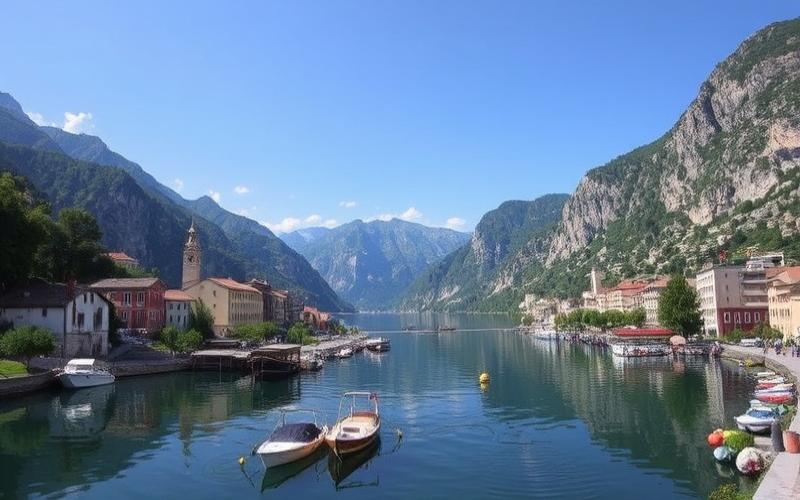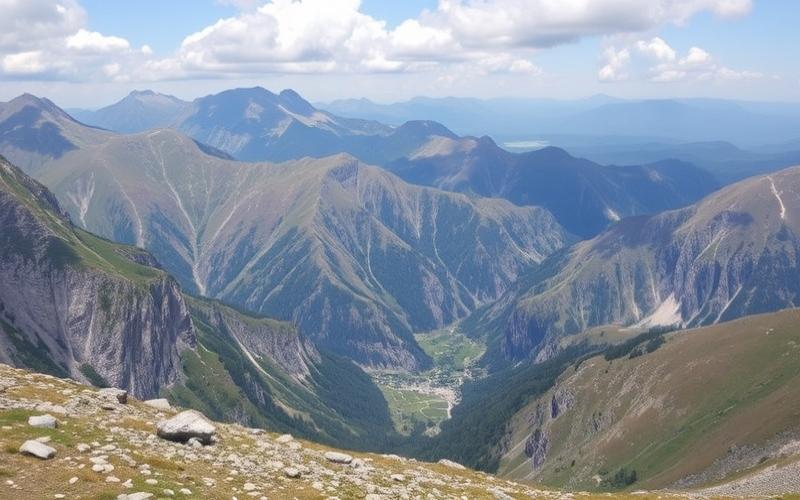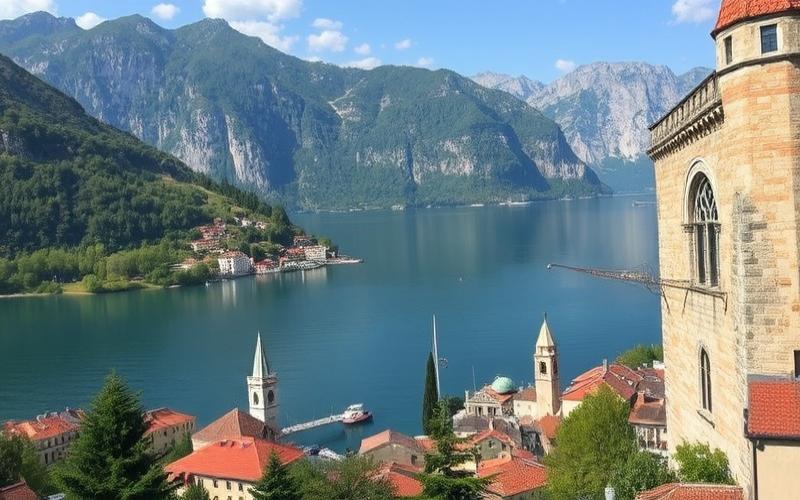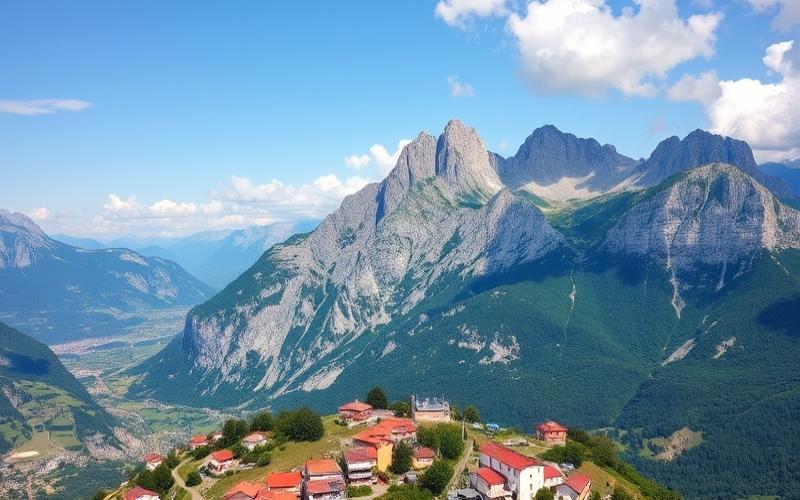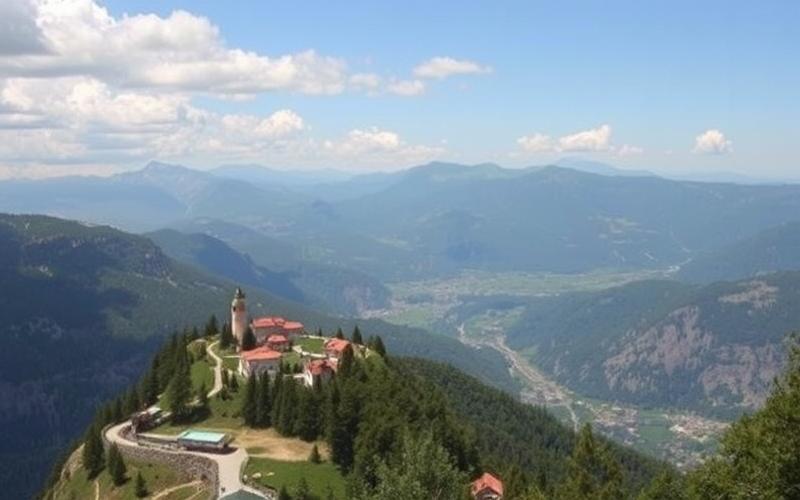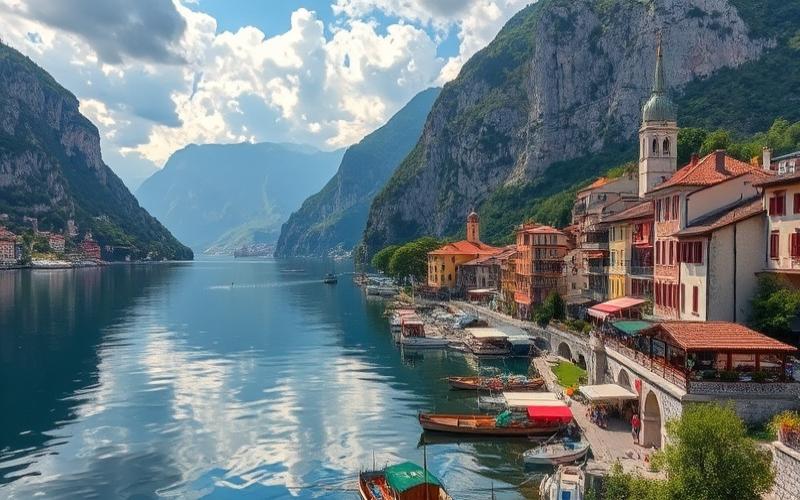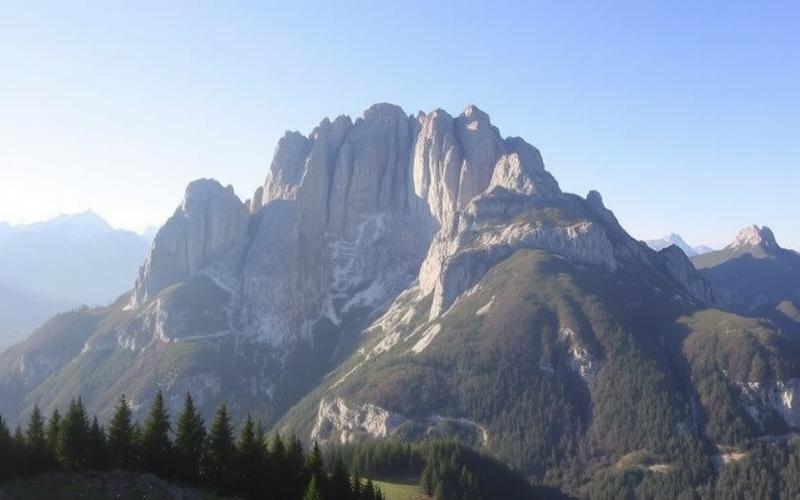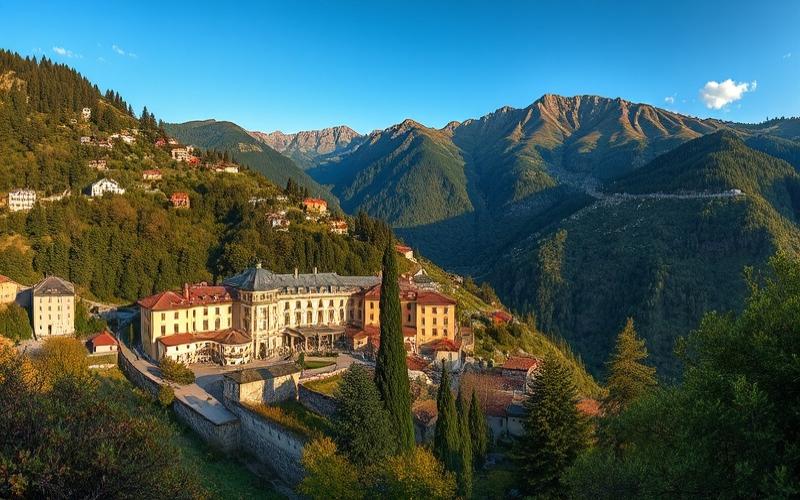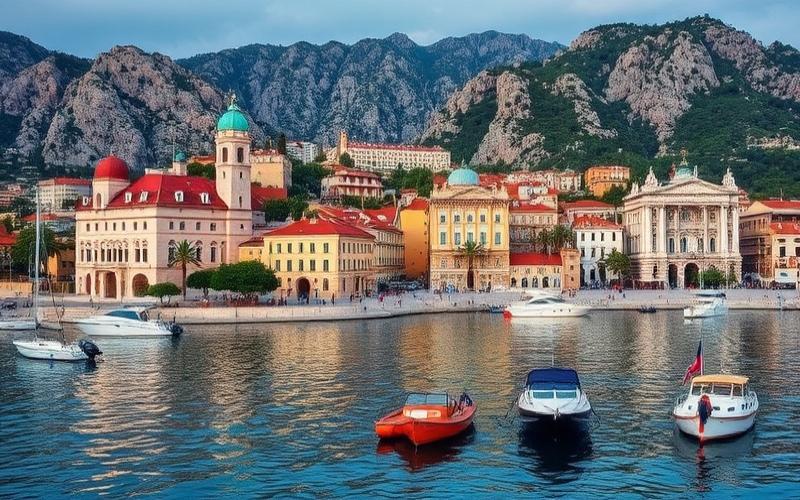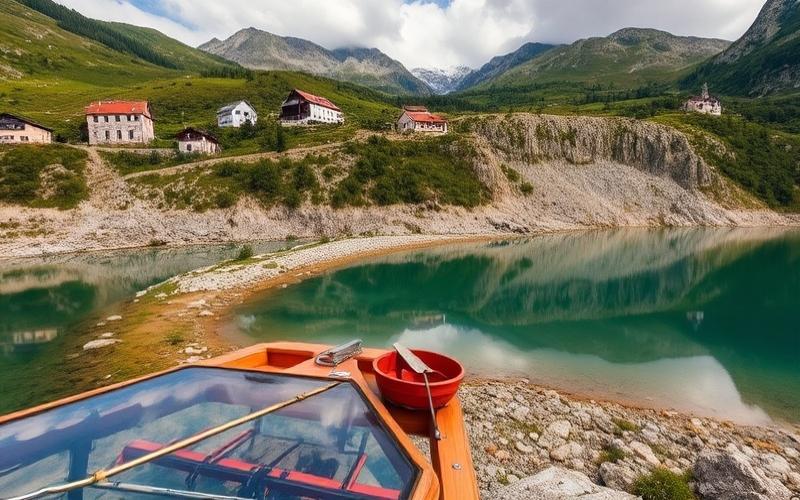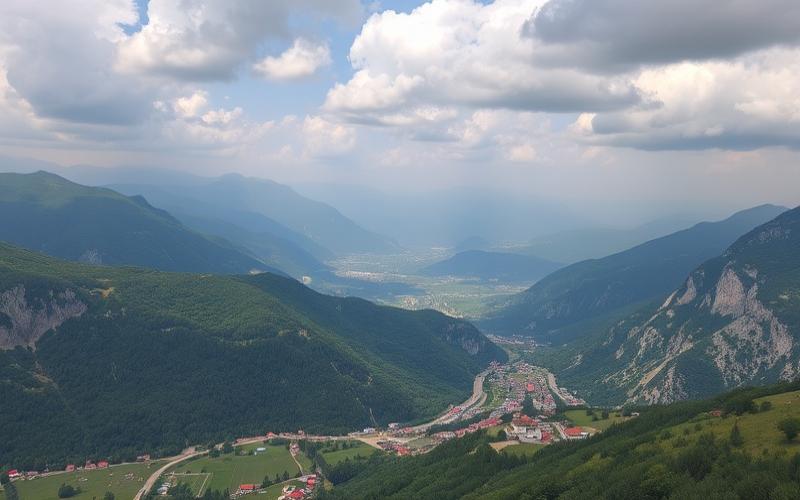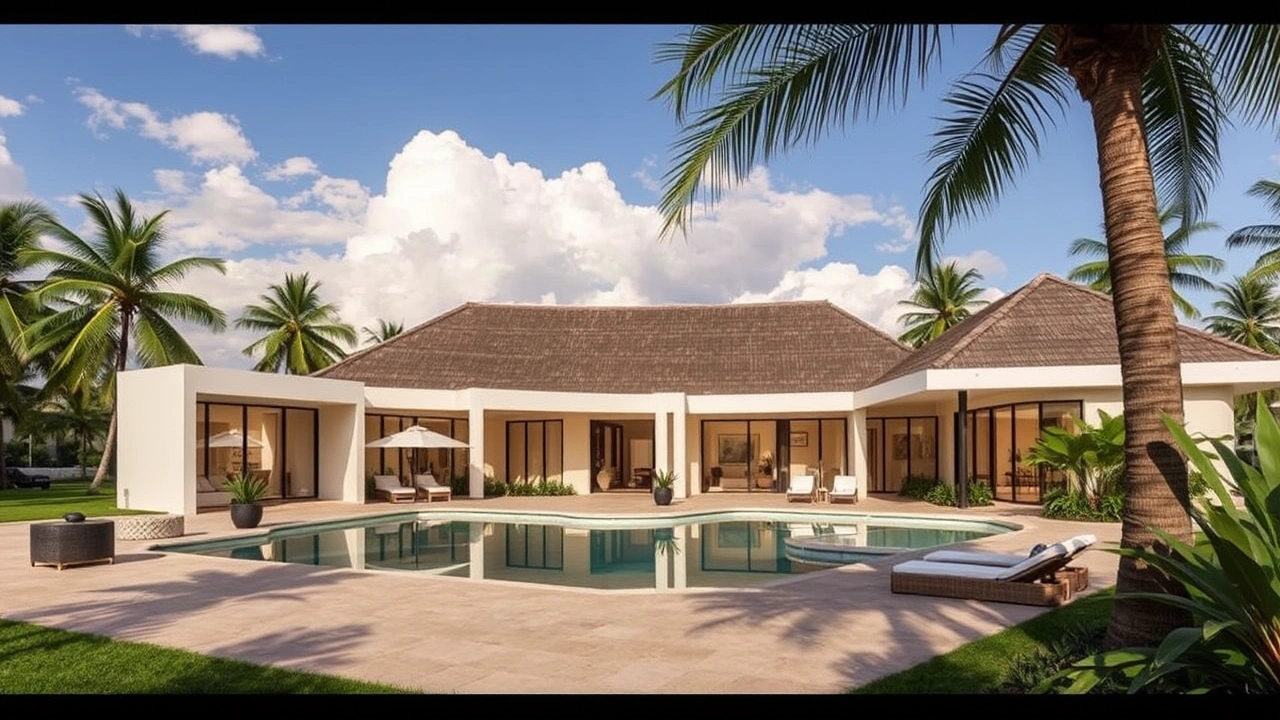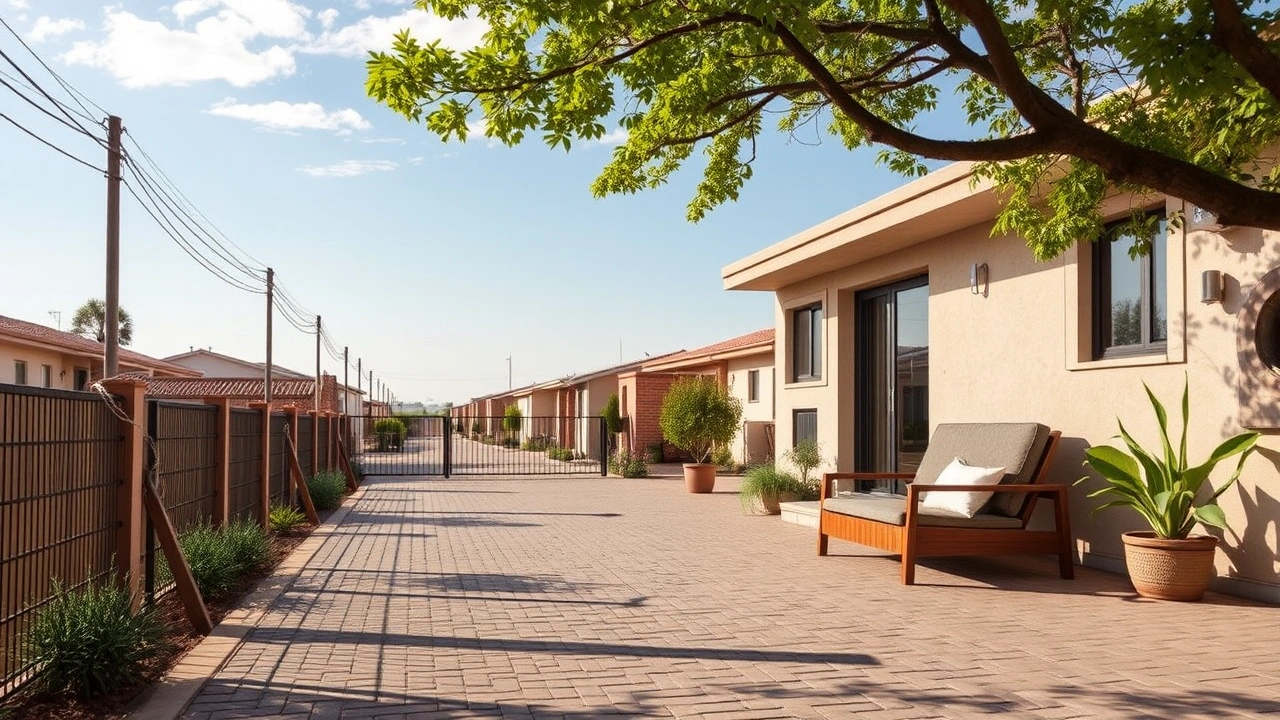
 Published on and written by Cyril Jarnias
Published on and written by Cyril Jarnias
In an ever-evolving economic context, choosing the right location for real estate investment is crucial. Montenegro, a Balkan country with a picturesque coastline and rapid tourism growth, stands out as an attractive option among its neighbors. While the economies of Croatia, Serbia, and Albania seek to modernize, each destination offers unique opportunities and challenges to consider. This article explores key factors such as real estate regulations, cost of living, and return potential to help investors make an informed choice in this dynamic region.
Real Estate Taxation in Montenegro: An Asset for Investors
Montenegro offers particularly attractive real estate taxation for investors, especially compared to its Balkan neighbors.
Key Aspects of Real Estate Taxation in Montenegro:
- Property transfer tax on secondary market purchase: 3% of purchase price or estimated cadastral value.
- Possible VAT exemption if buyer purchases from a developer who already paid VAT during development.
- Tax rate on real estate income and corporations: 9%, among the lowest in Europe.
- Maximum wage income tax rate capped at 11%.
- Simplified and fast administrative procedures for acquisition by foreigners, with clear notification by mail and few bureaucratic obstacles.
| Country | Acquisition/Transfer Tax | Corporate Tax | Individual Tax | Exemptions/Facilities |
|---|---|---|---|---|
| Montenegro | 3% | 9% | Up to 11% | VAT exemption, simple procedures |
| Croatia | 3–5% | Approx. 18–20% | Up to 30–36% | Longer process |
| Serbia | Approx. 2.5% | ~15% | ~10–20% | Less flexible |
| Albania | Variable (2–10%) | ~15% | ~13–23% | Sometimes complex procedures |
Montenegro’s Competitive Advantages:
- Low fixed rates, stable over time and lower than neighboring countries
- Flexible administrative procedures allowing foreign investors quick acquisition
- Frequent absence of double taxation, thanks to signed tax treaties
- Possibility for non-residents to easily open a local bank account after purchase
Success Examples Thanks to Favorable Tax Policy:
Several hotel projects on the Adriatic coast have attracted foreign capital in recent years, precisely because of the low flat rate (9%) applied to both individuals and corporations. Tourist residences were developed quickly because partial or total VAT exemption allowed accelerated return on investment from the first year after delivery.
Long-Term Perspectives:
The stable and attractive tax framework should continue to attract both private and institutional investors. With growing tourism demand, relative political stability, and costs still very competitive compared to already saturated neighboring destinations (Croatia), Montenegrin real estate potential remains high – especially in coastal or mountainous areas still underdeveloped.
Montenegro’s “tax-friendly” positioning constitutes an essential lever explaining its current real estate dynamism and sustainable prospects
Good to Know:
Real estate taxation in Montenegro stands out for its attractive tax rates, notably a property tax of 0.1% to 1% depending on location and property type, which is competitive compared to neighboring countries like Croatia or Serbia where taxes can reach up to 1.5%. Additionally, Montenegro frequently grants tax exemptions for foreign investors considered as contributing to local development, also offering simplified administrative procedures for acquisitions and property ownership. A significant example is the boom in coastal resort markets in Montenegro, where favorable tax policies have enabled several development projects to attract substantial foreign capital, reflecting a conducive and secure climate for long-term investments. Thanks to its efforts to integrate into the European Union, the country also offers attractive real estate appreciation prospects for visionary investors.
Comparing Real Estate Market Prices Between Montenegro and Its Neighbors
| Country | Average Apartment Price (€/m²) | Average House Price (€/m²) | Observed Range (€/m²) |
|---|---|---|---|
| Montenegro | 3,420 | 2,620 | 1,800 to 5,400 |
| Croatia | ~4,000 | ~2,900 | Zagreb: up to ~4,500, coast >6,000 |
| Bosnia-Herzegovina | ~1,500 | ~1,200 | 800 to 2,000 |
| Serbia | ~2,000 | ~1,800 | 1,500 to 3,000 (Belgrade +30%) |
| Albania | ~1,200 | ~950 | 700 to 2,000 (coast +25-40%) |
Regional perspectives indicate a continuation of this contrasting dynamic depending on local tourism attractiveness and the specific macroeconomic context of each country.
Good to Know:
In Montenegro, the average price of an apartment ranges around 1,500 to 2,000 euros per square meter, while that of a house can vary between 1,200 and 2,500 euros per square meter, depending on location and amenities. In comparison, Croatia shows significantly higher prices, especially in tourist areas like Dubrovnik, where prices can reach 3,000 euros per square meter. Bosnia-Herzegovina offers more modest prices, around 1,100 euros for an apartment, reflecting a less developed economy and lower real estate demand. In Serbia, prices are comparable to Montenegro, particularly in central areas of Belgrade, while Albania, benefiting from tourism growth, sees its prices rising, though remaining on average more affordable, with apartments around 1,000 to 1,500 euros per square meter. Price differences can be attributed to factors like increased tourism potential in Croatia, economic stability in Serbia, and tax incentives in Montenegro that attract foreign investors. Recent developments show a general price increase due to growing interest in these destinations, making real estate investment a potentially lucrative option.
Montenegro’s Legal Advantages Compared to Neighboring Countries
Montenegro offers several legal advantages that distinguish it from its Balkan neighbors for foreign real estate investors in 2025.
Montenegro’s investment residency program stands out for its accessibility, with a real estate investment threshold of only 250,000 euros, making it one of the most affordable pathways to residency in the region. This program is also known for its processing speed, allowing investors to obtain their resident status in significantly shorter timeframes than in neighboring countries.
Comparison of Investment Requirements for Residency
| Country | Investment Threshold | Processing Time | Tax Benefits |
| Montenegro | 250,000 € | Fast | Numerous |
| Croatia | 350,000 € | Moderate | Limited |
| Serbia | 300,000 € | Slow | Moderate |
| Albania | 300,000 € | Very slow | Few |
| Bosnia-Herzegovina | 300,000 € | Slow | Very limited |
| Kosovo | Unstructured | Variable | Minimal |
Montenegro’s economic growth translates into a more robust real estate market in 2025, creating an opportune moment for property purchases. The Montenegrin real estate market shows steady price increases, particularly in the new construction segment and in popular Adriatic coast resorts. In 2025, the average price per square meter in new constructions increased by 20% compared to the previous year, reaching 1,844 euros.
- Full property rights for foreigners (unlike some neighboring countries)
- Simplified purchase procedures with less bureaucracy
- Enhanced legal protection for international investors
- Tax exemptions during the first years of ownership
Montenegro also has the advantage of having approximately 120,000 apartments and houses either vacant or temporarily used, creating interesting opportunities for investors looking to acquire properties at competitive prices while benefiting from growth potential.
Concrete Case
A German investor who acquired a property in Porto Montenegro in early 2025 was able to complete the entire purchase process and obtain residency in just 3 months, compared to an estimated 8 to 12 months for a similar process in Croatia.
Montenegro’s growing political and legal stability, reinforced by its EU accession process, offers additional security for foreign investors compared to some of its neighbors with less predictable legal frameworks.
Good to Know:
Montenegro stands out for laws particularly favorable to foreign investors, facilitating real estate purchase through a simplified and fast acquisition procedure, unlike the administrative complexity often encountered in Croatia or Bosnia-Herzegovina. Additionally, the country offers attractive tax incentives, including exemptions of up to 30% for international buyers, an incentive strategy absent in Albania or Kosovo. In terms of legal protection, Montenegro ensures strengthened property rights, guaranteeing investors legal and political stability unmatched by Serbia, often subject to fluctuations. For example, a recent legislative reform consolidated these protections, strengthening the confidence of potential investors. These factors, coupled with a stable legal framework inspired by ongoing European integration, make Montenegro a preferred destination for buyers seeking to invest in a secure and proactive environment.
Economic Factors Influencing Real Estate Investment in the Region
Analysis of Current Economic Trends in Montenegro and Neighboring Countries
- Montenegro’s GDP growth is expected at 3.0% in 2025, according to the World Bank and European Commission, a slight downward revision from previous forecasts. This growth remains moderate, supported by private consumption and investment.
- The poverty rate decreased to 7.6% in 2024 thanks to rapid post-pandemic recovery.
- Inflation slowed to 2.1% at end-2024 (vs. 4.3% end-2023), but should slightly increase due to wage hikes and social transfers before a possible decline in 2026.
| Country | GDP Growth (2025) | Inflation (%) | Unemployment Rate (%) |
| Montenegro | 3.0 | ~2.1 | No recent specific data |
| Serbia | ~3.5* | ~4.0* | ~10* |
| Croatia | ~2.8* | ~3.0* | Exchange rate fluctuations between the euro and neighboring national currencies may influence the relative cost of regional real estate assets for different investors. |
Potential Impact of Montenegro’s Integration into the European Union
The accession process is progressing slowly; however:
- Future integration would strengthen the regulatory framework and could increase legal security as well as attractiveness to international investors.
- For comparison: Croatia already benefits from increased stability linked to its full European integration while Serbia remains a candidate without a firm timeline.
Summary Table:
| Country | EU Status |
| Montenegro | Candidate |
| Croatia | Member (2013) |
| Serbia | Candidate |
Recent Changes in Real Estate Legislation Influencing Investment Decisions
- Partial administrative simplification for certain real estate transactions to attract more international investors.
- New reporting obligations on certain transactions aiming for more transparency (anti-money laundering).
Legislative reforms tend toward progressive harmonization with European real estate law to improve the overall business climate.
Boxed Summary
- Montenegro’s economic dynamism remains moderate but stable with controlled inflation in early 2025.
- Official use of the euro strongly reduces currency risk for external investors compared to non-euroized neighboring markets.
- Tax incentives still exist despite some recent budget adjustments linked notably to expansive social policies.
- Evolution toward full EU membership constitutes a key differentiating factor compared to other regional markets in terms of future security/legal aspects for any structured real estate investment
Good to Know:
Montenegro’s economy is experiencing moderate GDP growth, comparable to its neighbors, but the unemployment rate remains relatively high, which can hinder real estate investment for local residents while offering opportunities for foreign investors with competitive prices. Fiscal policies are generally favorable, with government incentives to attract foreign direct investment; however, mortgage interest rates can vary and are often influenced by monetary fluctuations, with Montenegro informally using the euro. Integration into the European Union could stabilize these aspects, unlike countries like Serbia or Bosnia-Herzegovina that do not yet use the euro. Legally, Montenegro has recently simplified real estate purchases for foreigners, which, compared to similar legislative adjustments in Albania, makes it attractive. However, potential investors must remain vigilant regarding exchange rate fluctuations that can impact return on investment, especially for those operating from a different currency zone.
Disclaimer: The information provided on this website is for informational purposes only and does not constitute financial, legal, or professional advice. We encourage you to consult qualified experts before making any investment, real estate, or expatriation decisions. Although we strive to maintain up-to-date and accurate information, we do not guarantee the completeness, accuracy, or timeliness of the proposed content. As investment and expatriation involve risks, we disclaim any liability for potential losses or damages arising from the use of this site. Your use of this site confirms your acceptance of these terms and your understanding of the associated risks.

